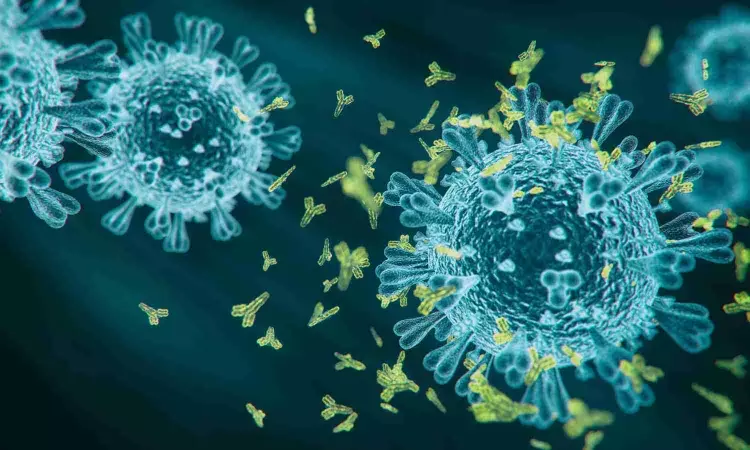- Home
- Medical news & Guidelines
- Anesthesiology
- Cardiology and CTVS
- Critical Care
- Dentistry
- Dermatology
- Diabetes and Endocrinology
- ENT
- Gastroenterology
- Medicine
- Nephrology
- Neurology
- Obstretics-Gynaecology
- Oncology
- Ophthalmology
- Orthopaedics
- Pediatrics-Neonatology
- Psychiatry
- Pulmonology
- Radiology
- Surgery
- Urology
- Laboratory Medicine
- Diet
- Nursing
- Paramedical
- Physiotherapy
- Health news
- Fact Check
- Bone Health Fact Check
- Brain Health Fact Check
- Cancer Related Fact Check
- Child Care Fact Check
- Dental and oral health fact check
- Diabetes and metabolic health fact check
- Diet and Nutrition Fact Check
- Eye and ENT Care Fact Check
- Fitness fact check
- Gut health fact check
- Heart health fact check
- Kidney health fact check
- Medical education fact check
- Men's health fact check
- Respiratory fact check
- Skin and hair care fact check
- Vaccine and Immunization fact check
- Women's health fact check
- AYUSH
- State News
- Andaman and Nicobar Islands
- Andhra Pradesh
- Arunachal Pradesh
- Assam
- Bihar
- Chandigarh
- Chattisgarh
- Dadra and Nagar Haveli
- Daman and Diu
- Delhi
- Goa
- Gujarat
- Haryana
- Himachal Pradesh
- Jammu & Kashmir
- Jharkhand
- Karnataka
- Kerala
- Ladakh
- Lakshadweep
- Madhya Pradesh
- Maharashtra
- Manipur
- Meghalaya
- Mizoram
- Nagaland
- Odisha
- Puducherry
- Punjab
- Rajasthan
- Sikkim
- Tamil Nadu
- Telangana
- Tripura
- Uttar Pradesh
- Uttrakhand
- West Bengal
- Medical Education
- Industry
Galectin 3 promising biomarker for predicting long COVID among patients of Covid 19: Study

Researchers have found that Galectin-3 could serve as a reliable biomarker for predicting post-COVID syndrome, especially when measured 60 to 120 days after SARS-CoV-2 infection. This finding comes from a detailed study aimed at identifying biomarkers that can forecast the development of post-COVID syndrome. This recent study was published in the journal Respiratory Medicine by Andrea Portacci and colleagues.
Post-COVID syndrome, characterized by persistent symptoms such as exercise-induced dyspnea, poses a significant challenge for clinicians. Despite various studies, reliable biomarkers that can predict its development remain scarce. This study aimed to explore the relationship between Galectin-3 blood concentrations and post-COVID syndrome.
The objective of the study was to evaluate the potential of Galectin-3 as a predictive biomarker for post-COVID syndrome by analyzing its blood concentrations in patients who had recovered from acute COVID-19.
The study was a single-center, prospective, observational study involving 437 consecutive patients attending an outpatient clinic for post-COVID assessment. For each patient, clinical, functional, and radiological data were recorded, along with several blood biomarkers associated with COVID-19, including Galectin-3. The predictive performance of Galectin-3 for post-COVID syndrome was assessed using Receiver Operating Characteristic (ROC) and multivariate regression analysis.
The key findings of the study were as follows:
• Among the blood biomarkers tested, Galectin-3 was the only one correlated with the development of post-COVID syndrome.
• Although the Cox regression model showed insufficient performance statistically, correlation coefficients and ROC curve analysis demonstrated a strong relationship between Galectin-3 levels and the time elapsed since acute COVID-19.
• Specifically, Galectin-3 showed greater predictive power when measured 60 to 120 days after infection.
• The findings suggest that Galectin-3 could be a valuable biomarker if evaluated correctly during follow-up to avoid misinterpretations.
The study's results indicate that Galectin-3 could play a crucial role as a predictive biomarker for post-COVID syndrome. Its predictive power is particularly strong when measured within the 60 to 120-day window post-infection. These findings underscore the importance of timing in the evaluation of Galectin-3 levels to maximize its predictive accuracy.
Galectin-3 has the potential to serve as an important biomarker for predicting post-COVID syndrome, but its evaluation should be carefully timed during follow-up assessments to ensure accurate predictions and avoid misinterpretations. This discovery could significantly enhance the management and treatment strategies for patients recovering from COVID-19.
Reference:
Portacci, A., Amendolara, M., Quaranta, V. N., Iorillo, I., Buonamico, E., Diaferia, F., Quaranta, S., Locorotondo, C., Schirinzi, A., Boniello, E., Dragonieri, S., & Carpagnano, G. E. (2024). Can Galectin-3 be a reliable predictive biomarker for post-COVID syndrome development? Respiratory Medicine, 226(107628), 107628. https://doi.org/10.1016/j.rmed.2024.107628
Dr Riya Dave has completed dentistry from Gujarat University in 2022. She is a dentist and accomplished medical and scientific writer known for her commitment to bridging the gap between clinical expertise and accessible healthcare information. She has been actively involved in writing blogs related to health and wellness.
Dr Kamal Kant Kohli-MBBS, DTCD- a chest specialist with more than 30 years of practice and a flair for writing clinical articles, Dr Kamal Kant Kohli joined Medical Dialogues as a Chief Editor of Medical News. Besides writing articles, as an editor, he proofreads and verifies all the medical content published on Medical Dialogues including those coming from journals, studies,medical conferences,guidelines etc. Email: drkohli@medicaldialogues.in. Contact no. 011-43720751


